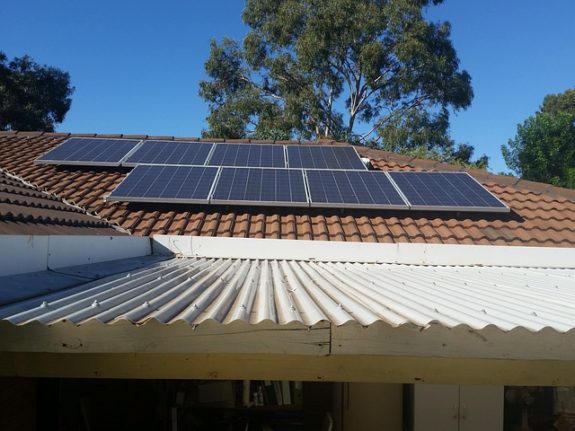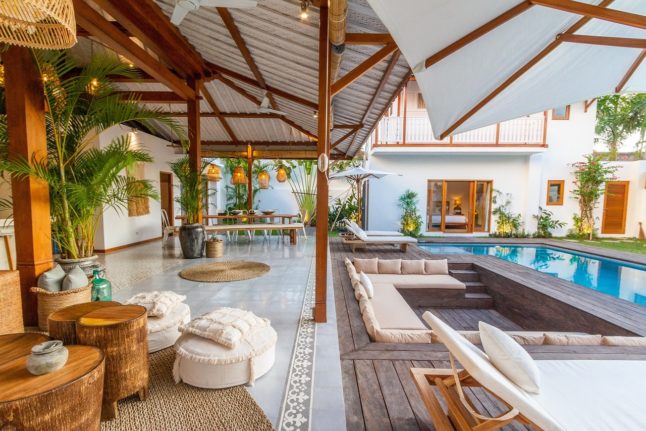If inflation and the cost of living crisis (particularly those utility bills) have got you looking for new ways to save money, in a sunny country like Spain installing solar panels can be a sensible investment that makes you some serious savings in the long run.
If you have your own land and property, installing them is a relatively straightforward process. You can basically do what you want when it comes to making changes to the property.
But if, like the majority of people in Spain, you live in an apartment block, things can get a little trickier and you’ll have to install them either on your balcony, or on a shared area like the roof terrace.
Can I install a solar panel on my balcony or terrace?
So, can you install solar panels on your balcony or terrace in Spain? The short answer is yes, but you’ll need the permission of your neighbours — known in Spain as ‘la comunidad.’
READ ALSO: ‘La comunidad’: What property owners in Spain need to know about homeowners’ associations
La comunidad is essentially a homeowner’s association within a building, and you must run all major changes by them first.
So before putting solar panels on the balcony or terrace of any shared building, you must get the permission of the entire comunidad. As with any building works or changes that could potentially alter the building, which in the case of solar panels would be the facade of the building itself or the roof and other shared areas, you have to get the neighbours on board.
However, that does not mean all have to agree to it, but everyone in the building must have been informed and had the chance to vote on it (more on that below).
This is one the most important requirements before you can move on to thinking about the type (more on that below too) of solar panels you want and where exactly you want to put them.
Owner’s agreement
As mentioned above, you’ll need the permission of your neighbours in la comunidad, and this must be reflected in a written document. If you have any neighbours that are renting their apartments, they should ask their landlords.
According to the regulations on solar panel installation, you’ll need a simple majority of votes from your neighbours so that solar panel installation can be carried out on the building.
Specifically, Law 49/1960, which deals with horizontal properties, establishes that the installation of solar panels in a shared building “will require the favourable vote of the simple majority of the owners, who, in turn, represent the simple majority of the participation fees.”
A few more things. Members of the comunidad who vote against solar panel installation will not be able to benefit from the energy or savings made in the long-term. The vote of property owners absent for the vote will be considered favourable, and crucially, the cost of the installation cannot exceed the amount of 12 monthly comunidad payments for shared expenses.
READ ALSO: How Spaniards are snapping up solar panels as energy crisis bites
However, many neighbours in Spain decide to invest in solar panels as a building and pool the installation costs and reap the benefits (and savings) together. Renewable energy experts generally recommend that if la comunidad wants to install solar panels together that photovoltaic panels on the roof work out best and cheapest, as opposed to on the balcony.
Shared roof solar panels work out better value than single-family or single-apartment ones, mostly because installation costs are shared among everyone. According to Engel Solar rooftop solar panels can generate between 50 and 80 percent of the average household’s electricity needs.
How much does solar panel installation cost in Spain?
The cost of a residential solar panel installation varies depending on the size, the type, how many you want or need, the efficiency of the solar panels, the geographical location, the complexity of the installation as well as the cost of any permits and legal procedures.
But generally speaking, buying and installing a 3 kWp photovoltaic panel starts at around €5000, though as with any major purchase or home reform, it’s always advised to shop around first.
How long do solar panels last?
The reason solar panels are often a worthwhile investment is because they last so long.
Obviously, their durability depends on different factors, such as the quality of the materials they’re made from, the technology, the environmental conditions and type of maintenance carried out, but generally speaking, the average life span of a solar panel ranges between 20 and 30 years.
Many manufacturers offer guarantees of up to 25 years on the energy production level, promising that it still will generate at least 80 percent of its original capacity after that time.



 Please whitelist us to continue reading.
Please whitelist us to continue reading.
I’m curious. I’ve just purchased an attico with sole access to the roof/terrace. Is the writer saying the benefits will be shared?